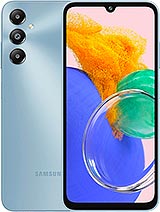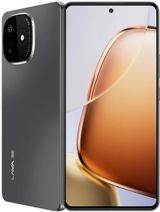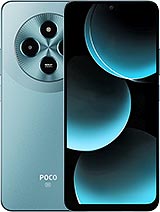Poco M7 Plus alternatives
Tap above to see alternatives.
Samsung Galaxy M14 4G alternatives
Tap above to see alternatives.
Poco M7 Plus

Poco M7 Plus
-
Snapdragon 6s Gen 3
6 nm
-
7000 mAh
33W
-
6.9"
1080 x 2340 pixels
-
50 MP
1080p@30fps
- Specs
Samsung Galaxy M14 4G

Samsung Galaxy M14 4G
-
Snapdragon 680
6 nm
-
5000 mAh
25W
-
6.7"
1080 x 2400 pixels
-
50 MP
1080p@30/60fps
- Specs
2x2.3 GHz Cortex-A78
6x2.0 GHz Cortex-A55
4x2.4 GHz Kryo 265 Gold
4x1.9 GHz Kryo 265 Silver
8GB 128GB (UFS 2.2)
6GB 128GB
f/1.8, (wide), PDAF
Auxiliary lens
f/1.8, (wide), PDAF
2 MP
f/2.4, (macro)
2 MP
f/2.4, (depth)
f/2.0, (wide)
f/2.0, (wide)
SIM1: Nano, SIM2: Nano
8 5G bands
n1, n3, n5, n8, n20, n28, n40, n78
In this performance comparison, the Poco M7 Plus with its Qualcomm Snapdragon 6s Gen 3 (6nm) performs better than the Samsung Galaxy M14 4G with the Qualcomm Snapdragon 680 (6nm), thanks to superior chipset efficiency.
Both Poco M7 Plus and Samsung Galaxy M14 4G offer the same software support — 2 years of OS updates and 4 years of security updates.
Both Poco M7 Plus and Samsung Galaxy M14 4G use LCD screens. In terms of smoothness, Poco M7 Plus offers a higher 144 Hz refresh rate, ensuring fluid scrolling and animations. Poco M7 Plus also boasts a brighter screen with 850 nits of peak brightness, enhancing outdoor visibility. Both phones have the same screen resolution.
Poco M7 Plus comes with a larger 7000 mAh battery, which may offer longer usage on a single charge. Poco M7 Plus also supports faster wired charging at 33W, compared to 25W on Samsung Galaxy M14 4G.
Poco M7 Plus includes an IP64 rating, while Samsung Galaxy M14 4G lacks an official IP rating.
¹ Scores can vary even with the same chipset due to RAM, thermals, and software optimization.










